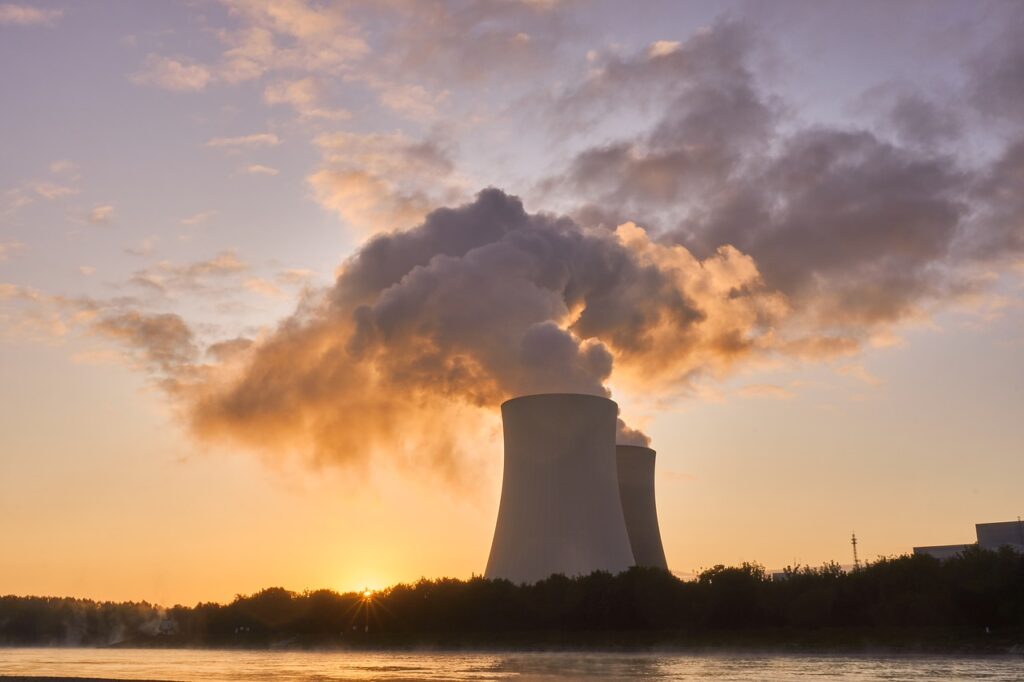On the 19th May, Seanad Eireann debated an important private member’s motion tabled by independent senators with a view to having Eamon Ryan set out his plans for meeting Ireland’s energy needs. The motion sought clarity on whether Ireland was considering the option using nuclear energy. Ryan has until now indicated that nuclear energy was an option that could be considered.
Now he told the Seanad that nuclear generated power is not an option “to which we will turn”. He said that conventional nuclear power plants operate at a capacity (typically 1.5 Gigawatts) which was large compared with our total demand (5GW). Because they have to be periodically shut down for maintenance, there would need to reserve be back-up of the same order (1.5 GW) and such capacity would be uneconomic in Ireland.
He went on to dismiss the possibility of using new generation smaller modular nuclear reactors, saying that experts and others tell him that they are still at a theoretical stage and are not going to be deployable “for decades”.
Because the Seanad is not covered by media and because his speech was not circulated to and published by the media, the public were not alerted to the news that we will not be touching nuclear generation in Ireland.
That is a far-reaching decision, and it is not clear whether it has been made as policy by the government as a whole or is simply the personal policy position of Minister Ryan. However, he did say that Ireland would rely on nuclear-generated electricity as a back-up from France via a new undersea interconnector to be constructed (with a capacity of 700 megawatts (or 0.7 GW) or from the UK (which is expanding its nuclear generation capacity including planned modular reactors of the kind dismissed by Ryan as unavailable for decades). He said that new connectors with the UK would be operational by 2024 and claimed the French connection would be available “a couple of years later”.
His position is that we will rely in future on nuclear generated electricity coming from British and French reactors as back-up. He said that it was quite likely that the Seanad chamber, as he spoke, was partly powered by such foreign nuclear power.
The minister’s speech implicitly acknowledged that Ireland would be dependent on imported gas in the medium term. He claimed that our gas needs would be fulfilled by North Sea and Norwegian gas fields and suggested that these supplies were unlikely to be diverted to other EU countries. He justified a ban on any further gas exploration in Ireland’s seas on the ground that such exploration was risky and “incredibly expensive”. How that justifies banning would-be exploration by energy companies was not made clear.
He ruled out Irish use of liquified natural gas or the construction of an LNG facility on the ground that it would create a demand for the use of LNG. He said, in that context, that the ESB wants to connect Moneypoint to off-shore wind generation with a view to producing hydrogen on a large scale – presumably for domestic consumption as a gas fuel in transport and in back-up power generation at least.
He also said, “I read Senator McDowell regularly in the Irish Times. He says this renewable energy revolution is a cod, that we are being fooled, that this is terrible and that the Association of Energy Engineers, AEE, thinks something different. It may well do”.
Firstly, I never wrote or said that the renewable energy revolution is “a cod”. I did ask him to clarify whether nuclear power was part of his plan. He has for the first time ruled out any nuclear generation in Ireland, while accepting that we will use foreign nuclear power as a back-up.
I did, and still do, query the wisdom of banning LNG and gas exploration, a fuel which we will need for decades, and reliance on North Sea gas for our economic survival. The Corrib field is running out.
I don’t share his confidence that that North Sea/Norwegian gas supply is completely reliable at affordable prices. I cited the views of the Irish Academy of Engineers, the IAE, (not the AEE, whatever that is) which has written a very serious analysis and critique of current trends and challenges.
If the ESB plans to generate sufficient hydrogen from off-shore wind power at Moneypoint to fill our needs, we need to see the detail; exactly when will the off-shore wind plant be installed and by whom; exactly how much hydrogen can the ESB produce and when. We also need absolute clarity about how much more electricity we need if we increasingly electrify transport, home heating and industry by 2030 and beyond.
This is no time for wand-waving or wishful thinking; we need granular, detailed and achievable implementation of sustainable plans. Our economic survival depends on that.

